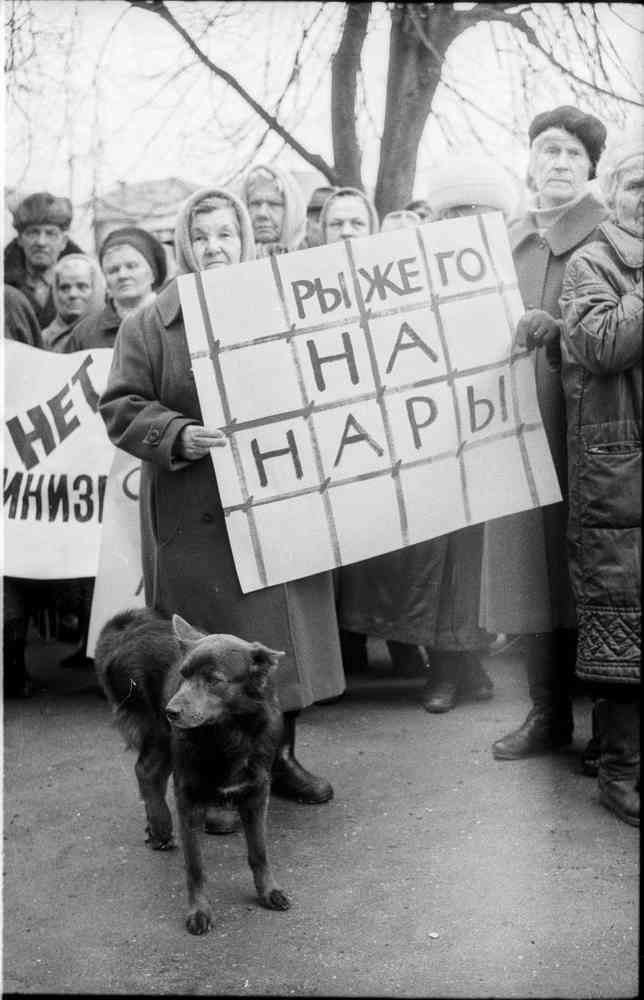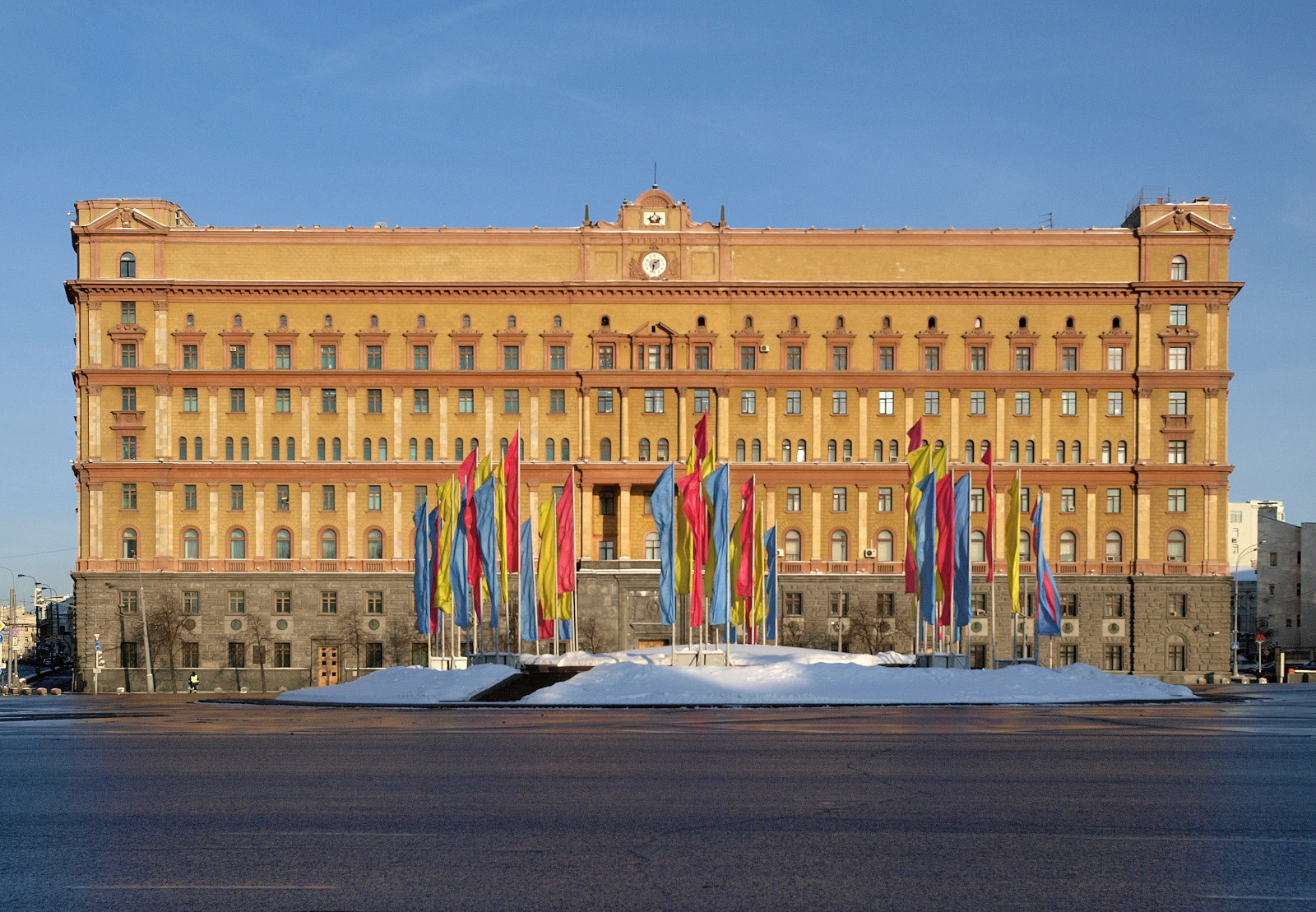|
Assassination Of Boris Nemtsov
The assassination of Boris Nemtsov, a Russian politician opposed to the government of Vladimir Putin, occurred in central Moscow on Bolshoy Moskvoretsky Bridge at 23:31 local time on 27 February 2015. An unknown assailant fired seven or eight shots from a Makarov pistol. Four of them hit Boris Nemtsov in the head, heart, liver and stomach, killing him almost instantly. He died hours after appealing to the public to support a march against Russia's war in Ukraine. Nemtsov's Ukrainian partner Anna Duritskaya survived the attack as its sole eyewitness. The assassination was met with worldwide condemnation and concern for the situation of the Russian opposition. Russian authorities also condemned the murder and vowed to conduct a thorough investigation. On 8 March 2015, Russian authorities charged Anzor Gubashev and Zaur Dadaev, both originating from the Northern Caucasus, with involvement in the crime. According to Russian authorities, Dadaev confessed to involvement in the murder. ... [...More Info...] [...Related Items...] OR: [Wikipedia] [Google] [Baidu] |
Bolshoy Moskvoretsky Bridge
Bolshoy Moskvoretsky Bridge (russian: Большой Москворецкий мост, link=no) is a concrete arch bridge that spans the Moskva River in Moscow, Russia, immediately east of the Kremlin. The bridge connects Red Square with Bolshaya Ordynka Street in Zamoskvorechye. Built in 1936–1937, it was designed by V. S. Kirillov (structural engineering) and Alexey Shchusev (architectural design). Moskvoretsky bridge (1829/1872, demolished) Wooden bridges east of the Kremlin have existed since the fifteenth century, as witnessed by Venetian Ambrogio Contarini, who travelled through Moscow in 1476. The first permanent Moskvoretsky bridge was built in 1829, about west of the present site. Three wooden arches, each long, were supported by stone abutments. It was loosely based on Kamennoostrovsky Bridge in Saint Petersburg designed by Agustín de Betancourt. The bridge burned down in 1871; after the fire, steel arches and decking were installed on the old abutments. Bolsho ... [...More Info...] [...Related Items...] OR: [Wikipedia] [Google] [Baidu] |
Moscow Kremlin
The Kremlin ( rus, Московский Кремль, r=Moskovskiy Kreml', p=ˈmɐˈskofskʲɪj krʲemlʲ, t=Moscow Kremlin) is a fortified complex in the center of Moscow founded by the Rurik dynasty. It is the best known of the kremlins (Russian citadels), and includes five palaces, four cathedrals, and the enclosing Kremlin Wall with Kremlin towers. In addition, within this complex is the Grand Kremlin Palace that was formerly the Tsar's Moscow residence. The complex now serves as the official residence of the President of the Russian Federation and as a museum with almost 3 million visitors in 2017. The Kremlin overlooks the Moskva River to the south, Saint Basil's Cathedral and Red Square to the east, and the Alexander Garden to the west. The name "''Kremlin''" means "fortress inside a city", and is often also used metonymically to refer to the government of the Russian Federation. It previously referred to the government of the Soviet Union (1922–1991) and its high ... [...More Info...] [...Related Items...] OR: [Wikipedia] [Google] [Baidu] |
Alexander Drymanov
Alexander is a male given name. The most prominent bearer of the name is Alexander the Great, the king of the Ancient Greek kingdom of Macedonia who created one of the largest empires in ancient history. Variants listed here are Aleksandar, Aleksander and Aleksandr. Related names and diminutives include Iskandar, Alec, Alek, Alex, Alexandre, Aleks, Aleksa and Sander; feminine forms include Alexandra, Alexandria, and Sasha. Etymology The name ''Alexander'' originates from the (; 'defending men' or 'protector of men'). It is a compound of the verb (; 'to ward off, avert, defend') and the noun (, genitive: , ; meaning 'man'). It is an example of the widespread motif of Greek names expressing "battle-prowess", in this case the ability to withstand or push back an enemy battle line. The earliest attested form of the name, is the Mycenaean Greek feminine anthroponym , , (/Alexandra/), written in the Linear B syllabic script. Alaksandu, alternatively called ''Alakasandu'' o ... [...More Info...] [...Related Items...] OR: [Wikipedia] [Google] [Baidu] |
Anastasia Baburova
russian: Анастасия Эдуардовна Бабурова--> , image = Anastasia Baburova.jpg , caption = , birthname = , birth_date = 30 November 1983 , birth_place = Sevastopol, Ukrainian SSR, Soviet Union , death_date = , death_place = Moscow, Russia , death_cause = Assassination , education = Moscow State University , occupation = Journalist/student , alias = , title = , family = , spouse = Alexander Frolov (m. 2003; divorced 2007) , domestic_partner = , children = , relatives = , credits = , employer = Novaya Gazeta , agent = , URL = Anastasia Baburova (russian: Анастасия Эдуардовна Бабурова ''Anastasia Eduardovna Baburova'', uk, Анастасiя Едуардівна Бабурова ''Anastasia Eduardivn ... [...More Info...] [...Related Items...] OR: [Wikipedia] [Google] [Baidu] |
Stanislav Markelov
Stanislav Yuryevich Markelov ( rus, Станисла́в Ю́рьевич Марке́лов, , stənʲɪˈslaf ˈjʉrʲjɪvʲɪtɕ mɐrˈkʲeləf; 20 May 1974 – 19 January 2009) was a Russian human rights lawyer. He participated in a number of publicized cases, including those of left-wing political activists and antifascists persecuted since the 1990s, as well as journalists and victims of police violence. Inter alia, Markelov had been the attorney for the family of Elza Kungaeva, a young Chechen woman killed by Russian colonel Yuri Budanov, who was released from prison in mid-January, 15 months before his original sentence was to end. Markelov was murdered on 19 January 2009 in Moscow. Career Markelov was a president of the Russian Rule of Law Institute. He represented Anna Politkovskaya, who was gunned down in Moscow in 2006; Mikhail Beketov, the editor of a pro-opposition newspaper who was severely beaten in November 2008; and many Chechen civilians who had been tortu ... [...More Info...] [...Related Items...] OR: [Wikipedia] [Google] [Baidu] |
Anatoly Chubais
Anatoly Borisovich Chubais (russian: Анатолий Борисович Чубайс; born 16 June 1955) is a Russian politician and economist who was responsible for privatization in Russia as an influential member of Boris Yeltsin's administration in the early 1990s. During this period, he was a key figure in introducing a market economy and the principles of private ownership to Russia after the fall of the Soviet Union. From 1998 to 2008, he headed the state-owned electrical power monopoly RAO UES. A 2004 survey conducted by PricewaterhouseCoopers and the ''Financial Times'' named Chubais the world's 54th most respected business leader. He was the head of the Russian Nanotechnology Corporation (RUSNANO) in 2008–2020.Russian reformer Chubais becomes Rosnanot ... [...More Info...] [...Related Items...] OR: [Wikipedia] [Google] [Baidu] |
Vladimir Kvachkov
Vladimir Vasilievich Kvachkov (russian: Владимир Васильевич Квачков; born 5 August 1948) is a Russian former Spetsnaz colonel and military intelligence officer, known for being arrested and charged for the attempted assassination of politician and businessman Anatoly Chubais in 2005, for which he was jailed for three years until he was acquitted on 5 June 2008. Kvachkov did not admit nor did he deny his role in the assassination attempt, instead declaring the act not criminal, and that the elimination of Chubais and the present Russian government was justified as Russia is under the occupation of a " Judeo-Masonic mafia". Early years Vladimir Vasilievich Kvachkov was born on 5 August 1948, Kraskino, Primorsky Krai, Russian SFSR, the son of a military officer, and spent his childhood as a military brat in the town of Ussuriysk, where his father was transferred. Kvachkov graduated from Suvorov Military School in 1966 and the Higher Military School in K ... [...More Info...] [...Related Items...] OR: [Wikipedia] [Google] [Baidu] |
Igor Krasnov
Lieutenant general of Justice Igor Viktorovich Krasnov (russian: И́горь Ви́кторович Красно́в; born 24 December 1975) is a Russian lawyer serving as the Prosecutor General of Russia since January 22, 2020 Career Igor Krasnov was born on December 24, 1975, in Arkhangelsk, he was a member of the Lenin Komsomol. He began his service as an investigator in the Kholmogorsky district of the Arkhangelsk region. He graduated from the Law Faculty of Pomor State University. He started serving in the prosecutor's office in 1997. From 2006 to 2007, Krasnov was an investigator of the central office of the General Prosecutor's Office. In 2007, he joined the Investigative Committee at the prosecutor's office of the Russian Federation. In 2011, he was appointed senior investigator for particularly important cases of the Investigative Committee of the Russian Federation. April 30, 2016, Krasnov was appointed Deputy Chairman of the Investigative Committee of the Russia ... [...More Info...] [...Related Items...] OR: [Wikipedia] [Google] [Baidu] |
Federal Security Service
The Federal Security Service of the Russian Federation (FSB) RF; rus, Федеральная служба безопасности Российской Федерации (ФСБ России), Federal'naya sluzhba bezopasnosti Rossiyskoy Federatsii, fʲɪdʲɪˈralʲnəjə ˈsluʐbə bʲɪzɐˈpasnəstʲɪ rɐˈsʲijskəj fʲɪdʲɪˈratsɨɪ) is the principal security agency of Russia and the main successor agency to the Soviet Union's KGB; its immediate predecessor was the Federal Counterintelligence Service (FSK) which was reorganized into the FSB in 1995. The three major structural successor components of the former KGB that remain administratively independent of the FSB are the Foreign Intelligence Service (SVR), the Federal Protective Service (FSO), and the Main Directorate of Special Programs of the President of the Russian Federation (GUSP). The primary responsibilities are within the country and include counter-intelligence, internal and border security, counter-terr ... [...More Info...] [...Related Items...] OR: [Wikipedia] [Google] [Baidu] |
Interior Ministry
An interior ministry (sometimes called a ministry of internal affairs or ministry of home affairs) is a government department that is responsible for internal affairs. Lists of current ministries of internal affairs Named "ministry" * Ministry of Internal Affairs (Adygea) * Ministry of Interior Affairs (Afghanistan) * Ministry of Internal Affairs (Albania) * Ministry of Internal Affairs (Altai Republic) * Ministry of the Interior (Argentina) * Ministry of the Interior (Austria) * Ministry of Internal Affairs (Azerbaijan) * Ministry of Interior (Bahrain) * Ministry of Home Affairs (Bangladesh) * Ministry of Public Administration (Bangladesh) * Ministry of Internal Affairs (Bashkortostan) * Ministry of Internal Affairs (Belarus) * Ministry of Home Affairs (Bermuda) * Ministry of Home and Cultural Affairs (Bhutan) * Federal Ministry of Interior (Federation of Bosnia and Herzegovina) * Ministry of National Integration (Brazil) * Ministry of Home Affairs (Brunei) * Ministry of Int ... [...More Info...] [...Related Items...] OR: [Wikipedia] [Google] [Baidu] |
Investigative Committee Of Russia
The Investigative Committee of the Russian Federation (russian: link=no, Следственный комитет Российской Федерации) has since January 2011 been the main federal investigating authority in Russia. Its name (''Sledstvennyi komitet'') is usually abbreviated to ''SKR'' (). The agency replaced the Russian Prosecutor General's Investigative Committee and operates as Russia's anti-corruption agency. It is answerable to the President of Russia and has statutory responsibility for inspecting the police forces, combating police corruption and police misconduct and is responsible for conducting investigations into local authorities and federal governmental bodies. On January 21, 2011, President Dmitry Medvedev signed a decree appointing Alexander Bastrykin, then the acting chair of the Prosecutor General's investigative committee, as Sledkom's chairperson. In 2012 President Medvedev began to discuss the possibility of creating a Federal Anti-Corrupt ... [...More Info...] [...Related Items...] OR: [Wikipedia] [Google] [Baidu] |
Makarych
The "Makarych" (russian: "Макарыч") is a family of Russian non-lethal gas pistols with the ability to fire ammunition with rubber bullets. It was developed jointly by the ZAO TSSZ "Kolchuga" and FGUP Izhevsk Mechanical Plant and is based on the Soviet Makarov pistol. Variants Izhevsk Mechanical Plant * IZH-79-9T "Makarych" (''ИЖ-79-9Т «Макарыч»'') - first model, 8-round, 9 мм P.A. cartridge, production started in February 2004 * IZH-79-9TM "Makarych" (''ИЖ-79-9ТМ'') - second model, 8-round, 9 мм P.A. cartridge, production started in 2006. Since September 2008, produced under designation МР-79-9ТМ * MP-471 - 8-round, designed in 2004, production started in 2005, 10x23 mm cartridge. Available only for private security companies * IZH-79-9TM-10 (''ИЖ-79-9ТМ-10'') - 10-round, 9 мм P.A. cartridge. Since September 2008, produced under designation МР-79-9ТМ-10 * МР-80-13Т - new model, 6-round, .45 Rubber cartridge Ukrainian derivatives ... [...More Info...] [...Related Items...] OR: [Wikipedia] [Google] [Baidu] |




